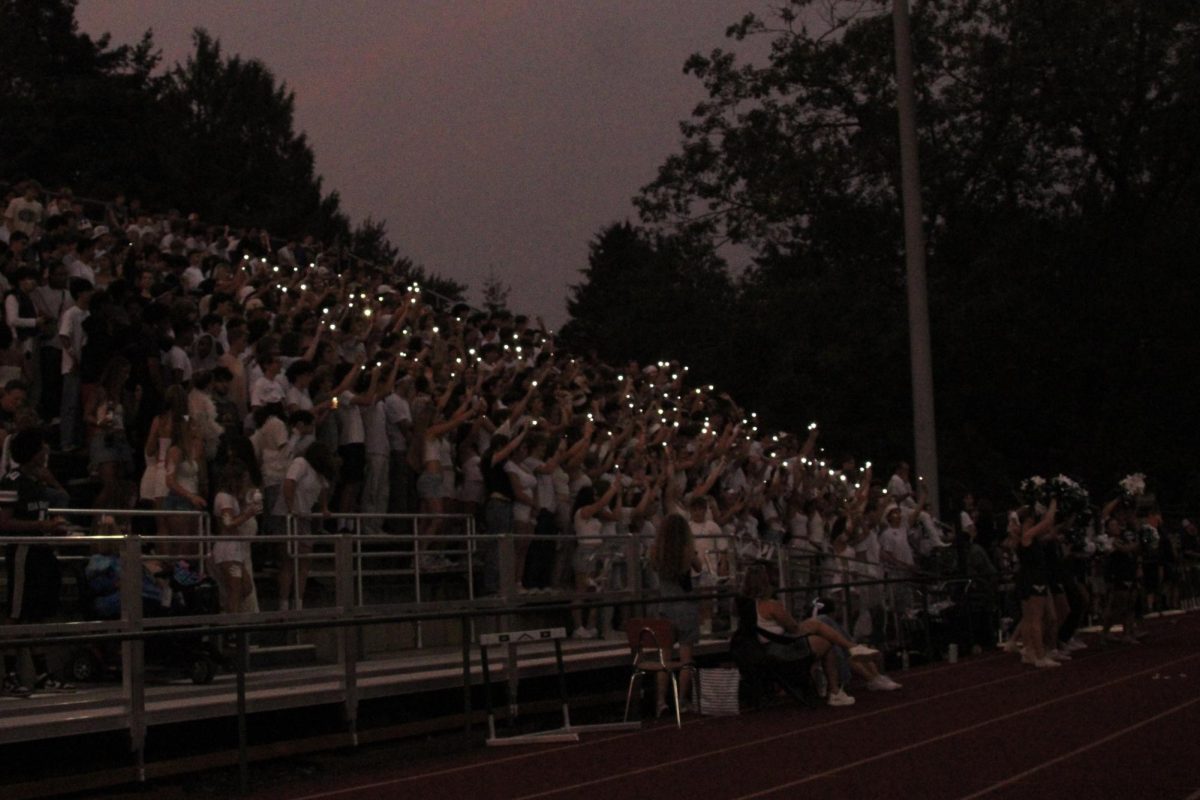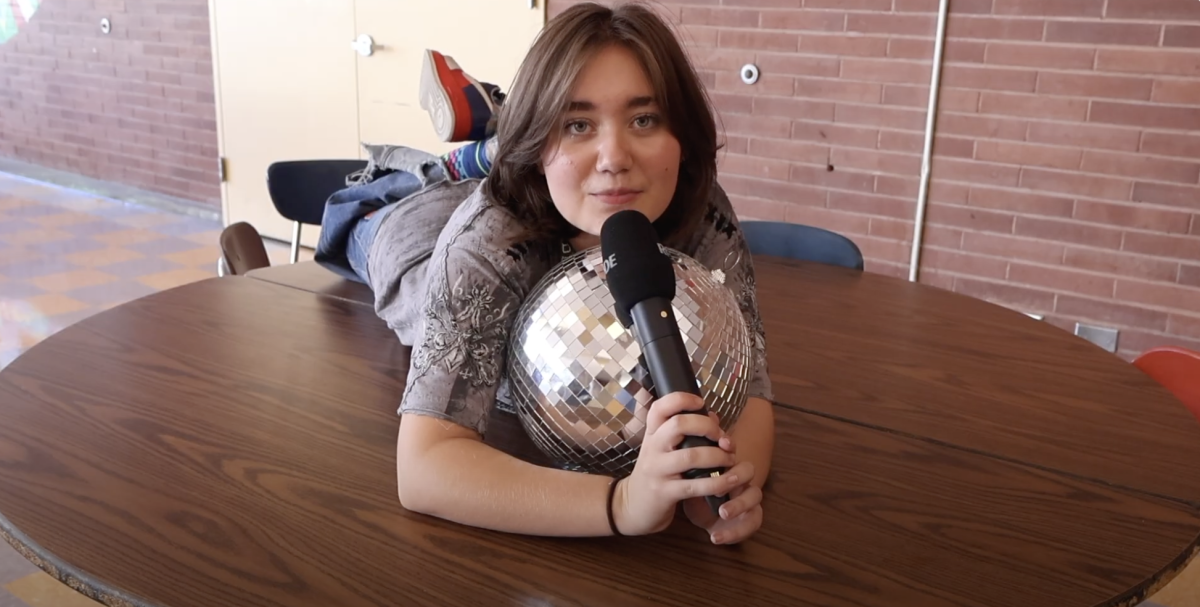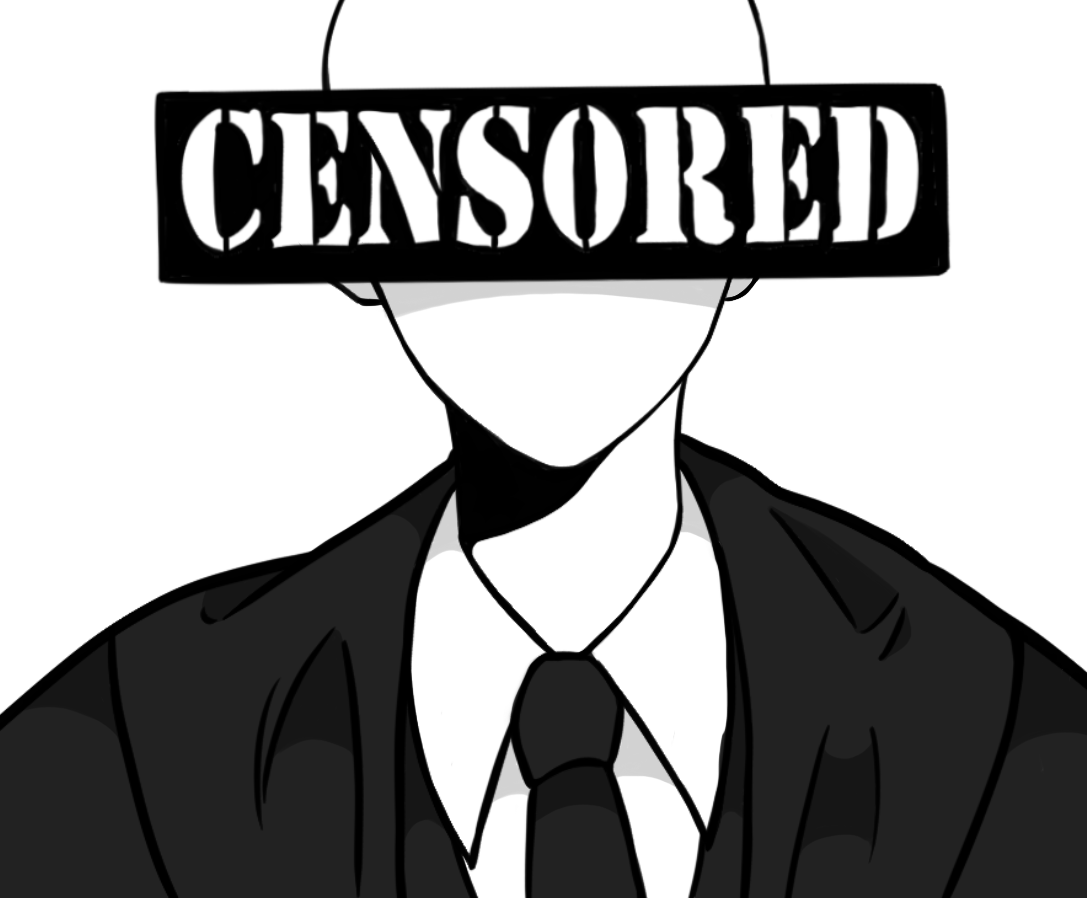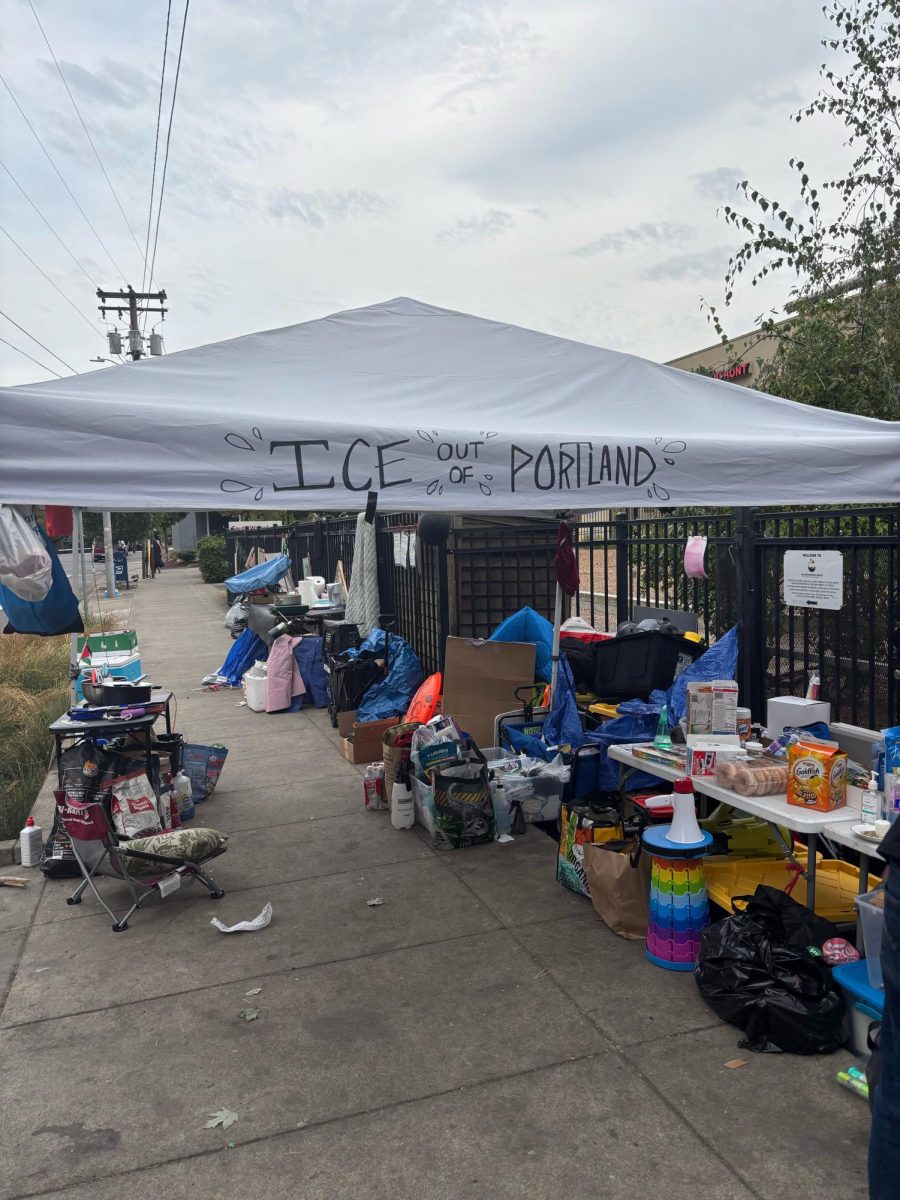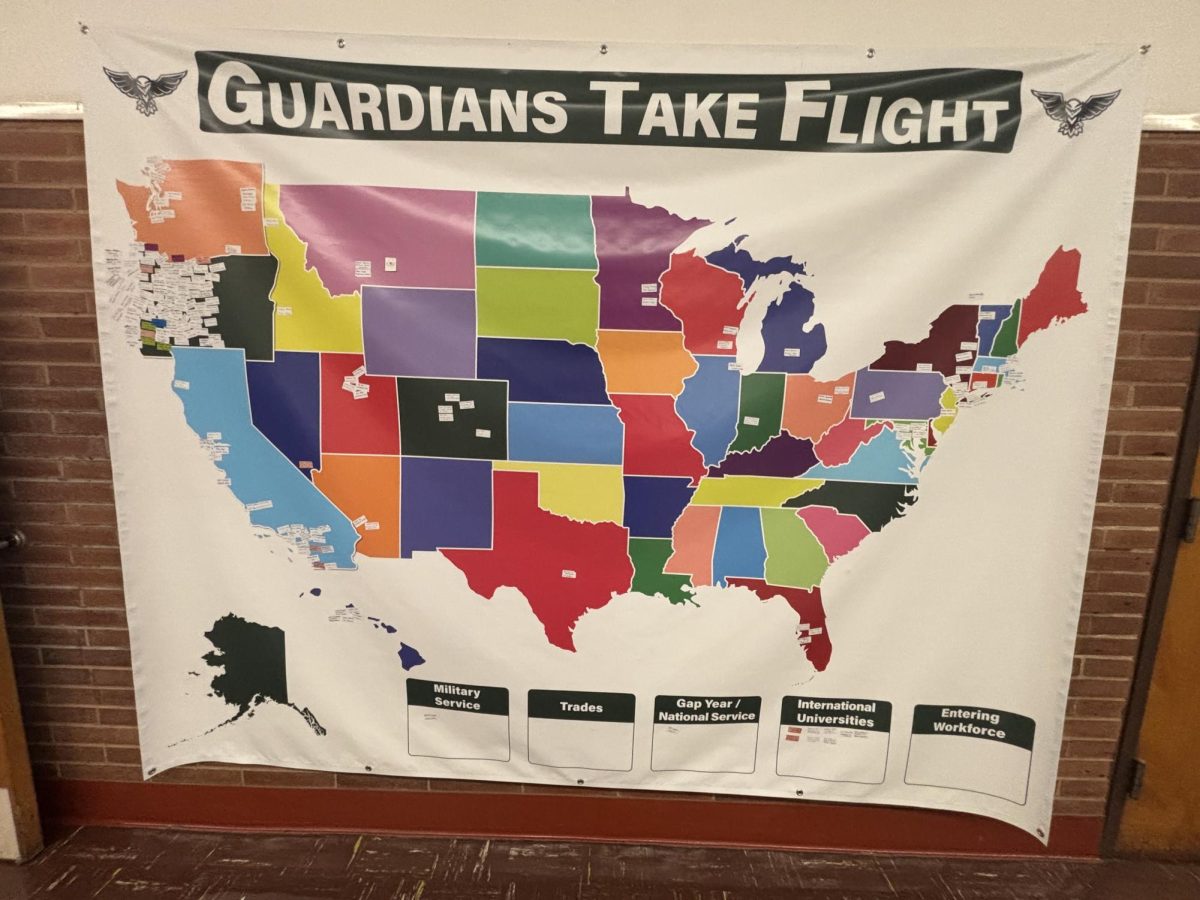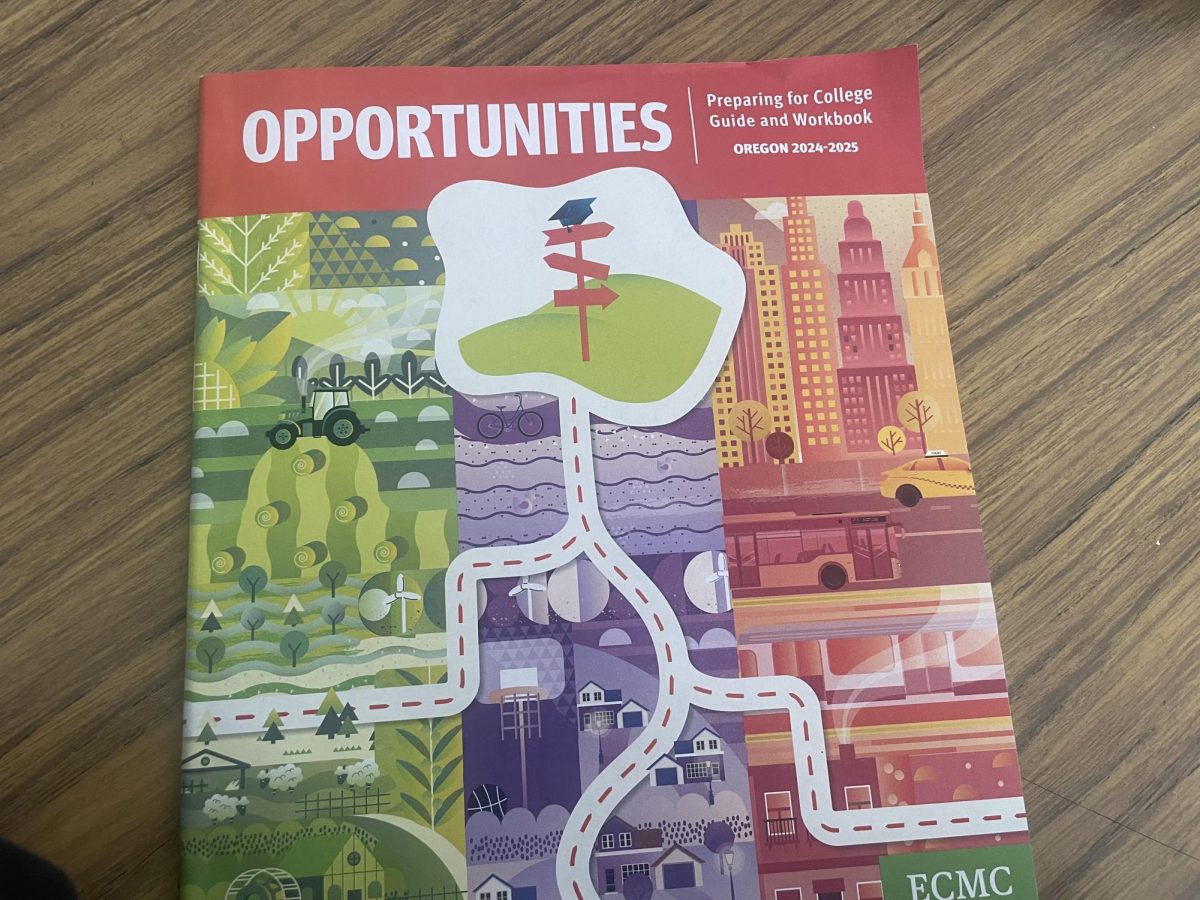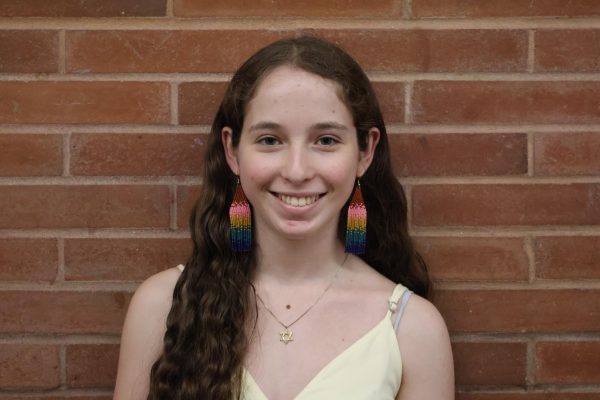Guardians, get ready for another amazing fall sports season, because the Ida B. Wells Pep Band has finally returned to the football field.
After only a week of absence from the sidelines, the band performed at the Wells vs. McDaniel football game on Sept. 19. Just the day before, the Portland Public School board signed an agreement with PPS band teachers surrounding unequal pay.
According to their PPS contract, band directors get paid for three or more events after school hours, such as concerts. Yet in addition to formal performances, high school bands also play at parades, nearly every school sporting event, and often have afternoon rehearsals, which can add up to over 20 appearances that are not during the school day.
“It felt like I was getting taken advantage of because we do more [than 3 performances], so we’re trying to get compensated for all that extra time we put in…” says IBW band director Nick Caldwell. After 14 years of teaching at the school, he participated in the strike largely out of solidarity. “I needed to be supportive of my other band directors.”
Even though the protest only lasted one week, the idea to strike for better wages had formed in August. The band directors of the Portland Association of Teachers union had sent a letter to the district communicating their disagreements about their contracts. When no resolution was presented, multiple high school bands including IBW, Lincoln, and Grant decided to strike before the first football game of the season.
“[The strike] was shocking to me,” says IBW senior and band student Ainsley Porter, “but I was really glad that [Caldwell] was taking action to show the district that he matters. It’s hours and hours… of him sacrificing his [time, only] to get back the satisfaction of making kids happy.”
In order to seek compensation for all of the extra time they put into their work, many band directors felt that protesting was the only way to feel heard by the district. Long hours unfortunately come with the job title for most teachers, but the current pay seemed very insufficient to many band directors with their hefty workload in mind.
There was a notable absence of music from the first football game of the year, which gained a lot of attention from students and outside media. A group of IBW band students even created banners and signs that decorated the bleachers at the game, speaking out against unfair pay for their districts’ teachers. The lack of usual school morale was very apparent and grabbed PPS’s attention, causing the strike period to be relatively short.
“I remember at the first game… it kind of felt like something was missing,” says Porter. “It was harder to fill time without [the] pep band.”
There haven’t been many changes to daily school life since the strike besides an 8% increase in pay for band teachers, going from 11% of their base salary for extended hours to 19%. Although this is widely accepted as a satisfactory conclusion, the topic of teachers’ salaries conflicting with the district is very complex and never fully resolved from the PAT strike in 2023.
However, the return of the band to after-school events has greatly boosted school spirit. “I know that [the band students are really] happy we’re back,” says Caldwell. “I heard some cheerleaders and football players and coaches saying ‘thanks for being here… we missed you guys last week,’ so that’s awesome.”
For many of the seniors in the band, it’s especially a relief to be back playing in the stands because football games are such a valued tradition for members of the pep band.
“I had people coming up to me [in the hallways] saying, ‘Is this true, [is the band] not going to be [at the game]?’” says senior and band student Sophie Lafrenz. “I was honestly kind of surprised that people even knew about the situation. I think the band has been underappreciated for so long… It was just shocking to have that support.”
Although this most likely is not the last strike PPS will see, it’s an optimistic sign of positive change that can lead to better working conditions for the hardworking teachers at our public schools.


